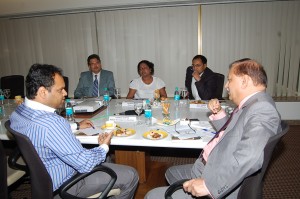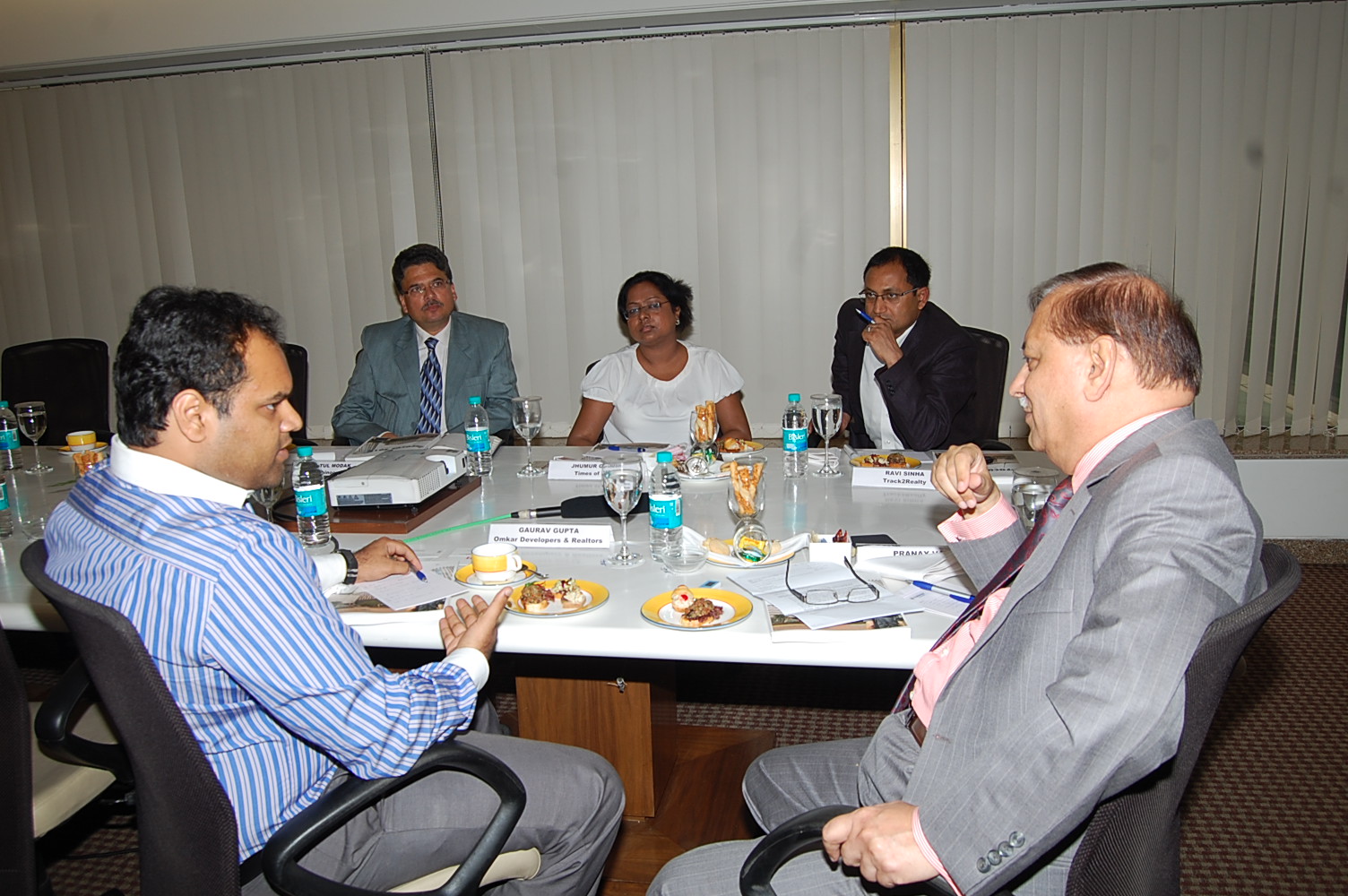Venue—Hotel Kohinoor Continental, Mumbai
Moderator—Pranay Vakil—Chairman Praron Consultancy
Atul Modak—Head-Kohinoor City
Gaurav Gupta—Director, Omkar Realtors & Developers
Jhumur Ghosh—National Feature Editor, Times of India
Ravi Sinha—CEO & Managing Editor, Track2Realty
 Ravi Sinha: But if we go by that yardstick, my question is that in the major real estate markets across India do we have that kind of projects where ECB would be viable?
Ravi Sinha: But if we go by that yardstick, my question is that in the major real estate markets across India do we have that kind of projects where ECB would be viable?
Gaurav Gupta: That is why definition of affordable housing is very important.
Pranay Vakil: That is important, but to my mind what is more important is that people are unable to predict which way the dollar is going. I mean they are reading some horror stories on listed companies because they are required to “mark to market” and today some of these companies are in huge problems where every quarter the adjustment is to the extent of thousand crore and more. I mean some of the very leading companies; their entire bottom line of the quarter gets wiped out due to just one factor which is completely outside their control.
I think developer will think twice before kind of committing himself because, as Atul said, can you buy land with that money. The answer is no. You can only fund the construction cost and the construction cost in affordable housing is never more than 33 per cent. Normally construction cost at the most can be 50 per cent but to fund that 50 per cent whether to take the exposure on your cash book is something people won’t want. I think that really explains why not many people come forward to take advantage of.
Jhumur Ghosh: You think when the government came up with the proposal, they could not anticipate that the industry would for very obviously not get into it?
Pranay Vakil: What has happened is that through some of the organizations like FICCI and CII we had appealed to the government that ECB should be allowed for construction. Now that request was made in the last two year and it is not a recent thing. What we have been saying meant indirectly that you grant us industry status.
Now one of the obvious fall out of the industry status would have been ECB. Have we got the industry status, ECB would have been operational. What they did is that they did not give us the industry status but allowed ECB. Now it is a typical attitude of the government to give and not to give.
Ravi Sinha: You mean ECB stands out to be another policy ambiguity?
Pranay Vakil: I personally feel that had rupee dollar parity been in the range of 40-45, some people would have borrowed money through this scheme also. Now may be the government is looking upon this as a prelude to opening up the ECB to non-affordable housing segment also. They wanted to experiment in affordable housing because it will bring down the cost of borrowings substantially if the rupee is stable.
Atul Modak: In this volatile scenario who will take the risk, as in the final calculation it may cost you more?
…to be continued





